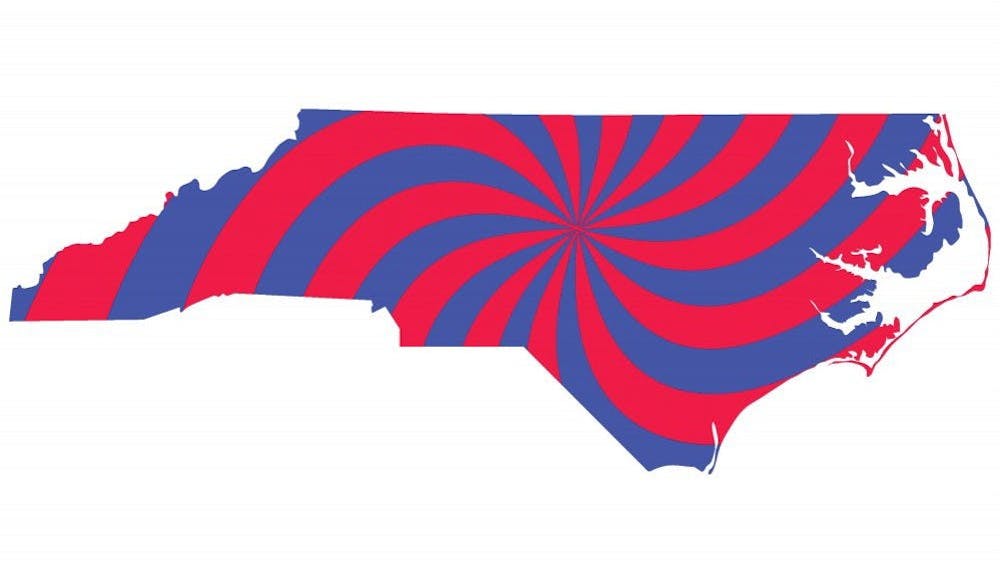With Super Tuesday looming around the corner, North Carolina gears up for its 15 minutes of fame in the national spotlight of the Democratic primary elections.
The voter landscape of North Carolina is dynamic, and it has become a key battleground state in both primary and general elections. In securing the nomination, it’s vital that candidates are able to mobilize African Americans, young voters and, most importantly, the infrequent voter.
Current aggregate state polling places former Vice President Joe Biden in a narrow lead with Sen. Bernie Sanders, I-Vt., and former New York City Mayor Michael Bloomberg trailing. Biden stormed through the South Carolina primary, claiming his first primary victory of the 2020 presidential campaign at a time when many were questioning the effectiveness of his campaign.
Duke held a media briefing regarding Super Tuesday and the role that North Carolina plays in it Feb. 25, where professors discussed factors that may shape the outcome of the election.
“We are seeing candidates actively vying for the support of black voters,” said Deandra Rose, assistant professor at the Sanford School of Public Policy and director of research at POLIS.
Rose argued that Biden is polling the best amongst black voters due to name recognition and his legacy as the vice president under the first African American president. He will rely on his ability to maintain this support in order to win North Carolina.
Gunther Peck, associate professor of history and director of the Hart Leadership Program, emphasized the importance of students and youth turnout as key to winning the general election. Peck cited the overwhelming youth turnout, specifically ages 18-29, as the cause of former President Barack Obama’s victory in the state in 2008.
“Young people have historically been game-changers, but very sporadically,” Peck said.
Due to reduced barriers and greater access to voting in North Carolina with on-campus voting and same-day registration, Peck said there is “a greater possibility of young people playing a decisive role both in the primary and in the general election.”
When asked about Sanders’ ability to attract young voters to the polls, Peck reiterated the importance of the student vote and Sanders’ success in Nevada as an example of him commanding the lion’s share of young voters.
However, Peck also brought up concerns for the Sanders campaign and the lack of new voter registration compared to 2008. Although current youth voters have seemed to concentrate around Sanders, Peck claims that the candidate has not increased the margins of youth voting like Obama did. It’s vital for Sanders to draw the sporadic voters into the polls if he wants to see success in North Carolina for this election.
The candidate pool widened after the four primaries, with Bloomberg entering the ballot in Super Tuesday states. His entrance in the race splits the moderate vote even further. POLIS Director Pope McCorkle, professor of the practice in Sanford, explained that state officials splitting endorsements between Biden and Bloomberg shows the division among moderates and their lack of consensus in a candidate.
McCorkle continued by suggesting the 40% of North Carolina democratic voters who selected Sanders as the nominee in the 2016 primary elections is enough to secure the primary election in 2020.
Get The Chronicle straight to your inbox
Signup for our weekly newsletter. Cancel at any time.

